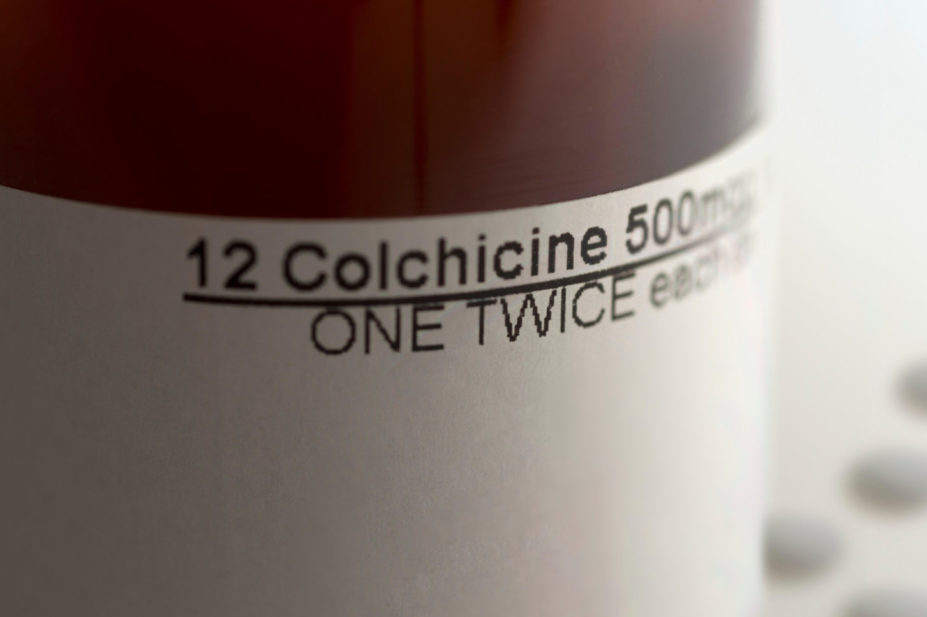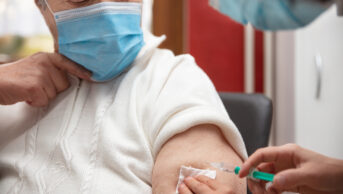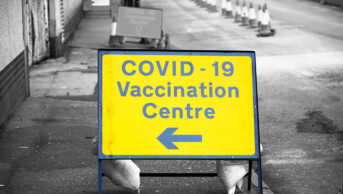
Shutterstock.com
There is “insufficient evidence” to recommend colchicine as a treatment for COVID-19 patients, updated guidance from the National Institute for Health and Care Excellence (NICE) has advised.
In an update to its COVID-19 rapid guideline, released on 27 May 2021, NICE issued a strong recommendation that the drug should not be offered to people in hospital to treat COVID-19, and that further research should be carried out in community settings to see whether it is an effective treatment.
The committee said it was “aware” that there was newly published evidence on colchicine from the Randomised Evaluation of COVID-19 Therapy (RECOVERY) trial and that this was being reviewed.
This is the first time NICE has issued advice on the use of colchicine to treat COVID-19.
In the updated guidance, NICE also updated its conditional recommendation for the use of remdesivir in COVID-19 patients in hospital settings.
“We now advise that remdesivir should be considered for hospitalised patients, aged 12 years and over or weighing 40 kilograms or more, who are on low-flow supplemental oxygen (delivered through a face mask or nasal canula).”
Previously, the recommendation had been that remdesivir should be considered for patients on supplemental oxygen but not on invasive mechanical ventilation.
The NICE committee stated that the update reflected a “slightly different approach” to its data analysis based on evidence that the use of remdesivir was more beneficial earlier in the course of disease.
In March 2021, recruitment to the colchicine arm of the RECOVERY trial was closed after the trial’s Data Monitoring Committee concluded that there was “no convincing evidence” that further recruitment to the arm would provide conclusive proof of worthwhile mortality benefit.
Preliminary results from the RECOVERY trial, published on 18 May 2021, suggested that, in adults hospitalised with COVID-19, colchicine was not associated with reductions in 28-day mortality, duration of hospital stay or risk of progressing to invasive mechanical ventilation or death.
Results from the COLCORONA randomised controlled study, published in The Lancet Respiratory Medicine on 27 May 2021, suggested the risk of the primary composite efficacy endpoint of death or hospital admission, owing to COVID-19 infection in the 30 days following randomisation, was not statistically significantly lower among the patients who were randomly assigned to receive colchicine than in those who received placebo.
However, among patients with polymerase chain reaction (PCR)-confirmed COVID-19, colchicine was found to be associated with a lower rate of the composite of death or hospital admission than placebo.
The authors of the study concluded that, given the absence of orally administered therapies to prevent COVID-19 complications in community-treated patients and the benefit of colchicine in patients with PCR-proven COVID-19, the anti-inflammatory agent could be considered for use in those at risk of complications.
Gino Martini, chief scientist at the Royal Pharmaceutical Society, said he “welcomed” the advice from NICE to clarify any confusion regarding the use of colchicine for the treatment of COVID-19.
On 27 May 2021, the European Medicines Agency’s COVID-19 taskforce advised healthcare professionals that there was “currently insufficient evidence” that inhaled corticosteroids, such as budesonide, were beneficial for people with COVID-19.
The advice is in contrast to interim results from the Platform Randomised Trial of Interventions Against COVID-19 in Older People (PRINCIPLE), which suggested that budesonide shortened recovery time from COVID-19 by a median of three days, compared with usual care.
“Regarding inhaled corticosteroids we’ll have to wait and see the full results from the PRINCIPLE trial to draw any firm conclusions,” said Martini.
READ MORE: Everything you need to know about the COVID-19 therapy trials


